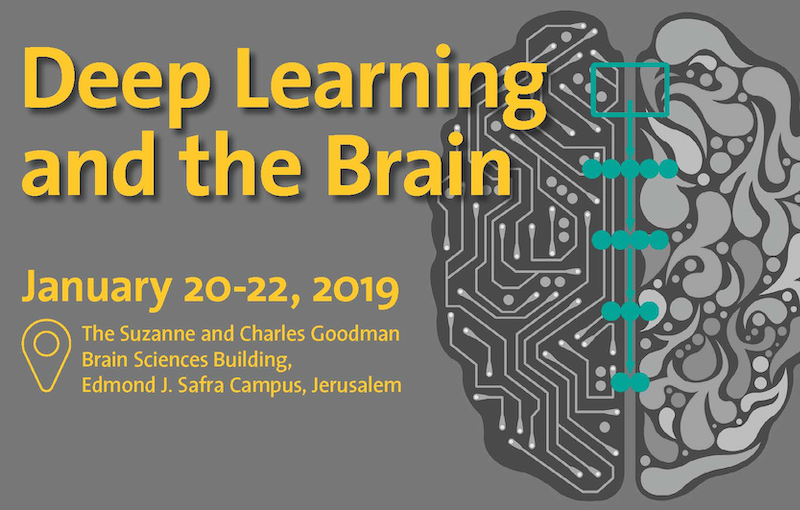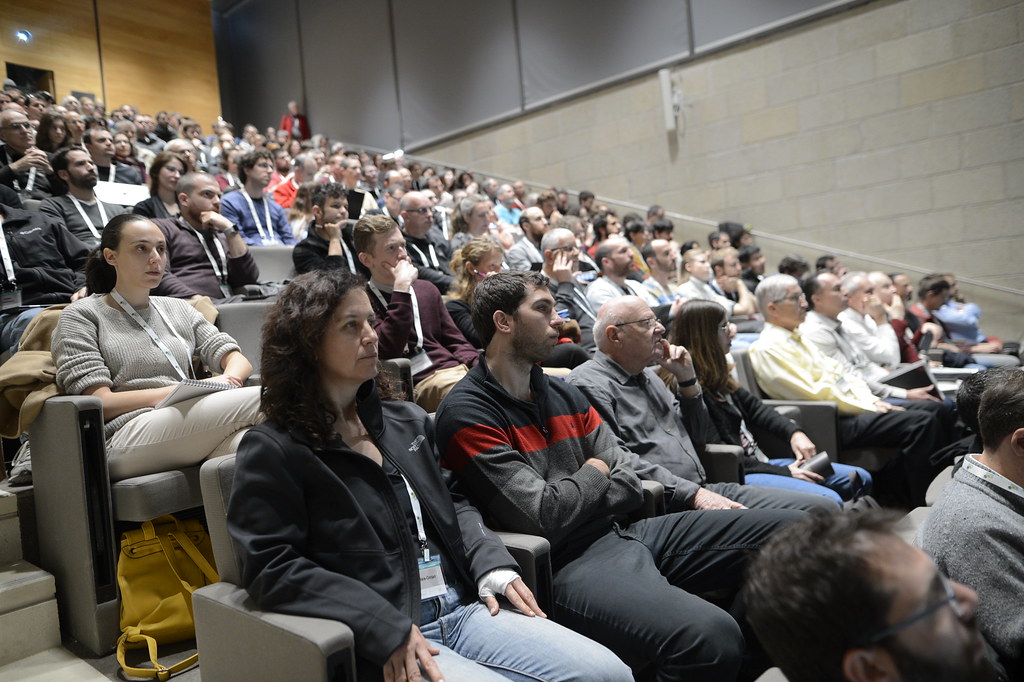Where
Becker Auditorium, The Suzanne and Charles Goodman Brain Sciences Building, Edmond J. Safra Campus, Jerusalem

Deep Learning and the Brain
Videos from event available on our YouTube channel
Photos available on our flick also.
Recent transformative changes in AI have spawned the development of artificial neural networks with deep architectures to tackle a variety of practical real-world learning problems. But how closely do these artificial networks resemble computation in the brain? Beyond superficial similarity to layered structures in the brain, do deep networks capture more nuanced aspects of biological learning and computation or human and animal behavior? What is the impact of machine learning on data analysis in neuroscience? Does progress in AI call for new experimental paradigms in neural and cognitive research?
This meeting will bring together leading AI and neuroscience researchers from around the world to discuss theories of the brain and mind by examining deep learning in light of recent anatomical and physiological experiments in brain and cognitive sciences. The format of the meeting will juxtapose empirical research from specific domains within the neural and cognitive sciences with theoretically-oriented work from AI and deep learning and will provide ample time for discussion and debate among the participants.
Topics:
- Do we understand the successes and limitations of Deep Learning?
- Are Deep Networks appropriate models for the brain, cognition, or behavior?
- What is the impact of machine learning on data analysis in neuroscience?
- Does progress in AI call for new experimental paradigms in neural and cognitive research?
- What is the impact of recent advances of AI on theoretical neuroscience?
Invited speakers include:
Andrea Banino, DeepMind
Matthias Bethge, University of Tubingen
Aaron Courville, University of Montreal
Sophie Deneve, École Normale Supérieure
Michale Fee, MIT
Rob Fergus, New York University
Surya Ganguli, Stanford University
Inbal Goshen, The Hebrew University
Kalanit Grill-Spector, Stanford University
Timothy Lillicrap, DeepMind
Yonatan Loewenstein, The Hebrew University
Adi Mizrahi, The Hebrew University
Yael Niv, Princeton Univeristy
Tomaso Poggio, MIT
Andrew Saxe, University of Oxford
Anna Schapiro, Harvard Medical School
Shai Shalev-Schwartz, The Hebrew University
Daniel Soudry, Technion
Naftali Tishby, The Hebrew University
Andreas Tolias, Baylor College of Medicine
Srinivas Turaga, Janelia Farm
Daphna Weinshall, The Hebrew University
Yair Weiss, The Hebrew University
Daniel Yamins, Stanford University
Byron Yu, Carnegie Mellon University
Related resources:
Program (updated 02/12/2018)
Abstracts (updated 02/12/2018)

